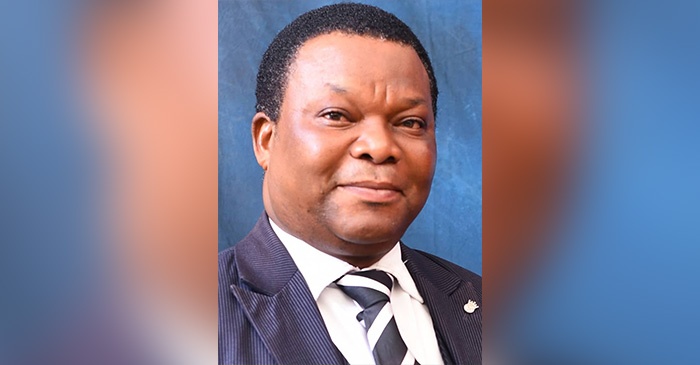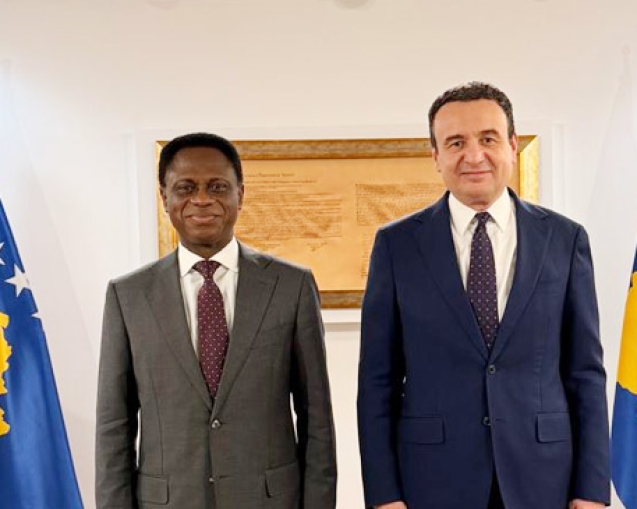INTRODUCTION
Throughout African history, both primal and Christian prophets have held significant influence. Prophets in the Bible served as trusted advisors, delivering guidance and warnings to their followers. In modern-day Ghana, however, prophetism has taken on a different form, focusing on predictions related to political events, including election results, major sports matches, and even the fate of political figures and celebrities. This phenomenon has spurred extensive research into the world of “political prophetism,” which specifically centres on prophecies related to political outcomes and the fate of public figures. Isaac Owusu Bempah and Nigel Gaisie, two popular prophets in Ghana, were perceived to have been linked with the two major political parties in Ghana namely the New Patriotic Party (NPP) and the ruling New Democratic Congress (NDC). These two prophets gave opposing prophecies during the 2016 and 2020 general elections. Both prophets had predicted different outcomes, leading to a heated exchange of words and media scrutiny on the relevance of prophetic practices in modern times. The situation further escalated when other prophets took sides. The aim of this article is to examine the effect of these political prophetic declarations on Christianity in Ghana. Is the move of the Ghanaian government to regulate these prophecies in the right direction?
WHO IS A PROPHET?
According to the Ghanaian theologian Opoku Onyinah, who is the immediate-past Chairman of The Church of Pentecost and author of the book “Apostles and Prophets,” a prophet is a messenger of God.[1]A prophet is commonly understood as someone who publicly proclaims a message they believe has come from a deity or divine inspiration. It is also someone who speaks on behalf of a god or deity. It is worth noting that according to dictionary definitions, prophecies can originate from either divine or demonic sources.[2] We see this exemplified in the Bible, where prophets such as Isaiah, Jeremiah, Nathan, Ezekiel, Micah, and John the Baptist conveyed messages from God to kings and nations. In Ghana and across Africa, prophetism is particularly prominent due to the strong religious beliefs of the people. This has led to the emergence of political prophecies, which are predictions offered by prophets perceived to be affiliated with political parties. Unfortunately, this has led to accusations of bias in their prophetic pronouncements. Despite this, these prophets are still revered by their followers due to their perceived unique gifts.
WHAT IS PROPHETISM?
As the well-known Ghanaian theologian C.G Baeta noted in 1960, prophetism is a trend that is likely to continue. He states:
Prophetism appears to me to be perennial phenomenon of African life, and the basic operative element in it seems to be personal in character. Whether in relation to or independently of events or development in society, the individual endowed with a striking ability to impose his own will on others, believing himself, and believed by others to be a special agent of some supernatural being of force, will emerge from time to time and secure a following.[3]
Baeta’s statement holds true and is prophetic in nature. This is particularly evident in Ghana, where many prophets are offering prophetic guidance on major political and socio-economic issues, resulting in a significant following. The situation has become even more complex, with some prophets providing conflicting prophecies, seemingly influenced by political parties. In African Traditional Religion, for example, Quacoopome (1988) noted that issues like premature death, disasters, protracted sicknesses, and disabilities needed investigation to pacify provoked gods. The seer or soothsayer is a major source of inquiry into these maledictions, offering foresight into the future and prescribing necessary sacrifices for relief or remedy. The Ewe of Ghana refers to it as ‘nukaka’ or ‘nutabiabia’ According to T.N.O Quacoopome (1988):
The key to the understanding of the world view of the African is her religion. The traditional religion permeates every aspect of the African life, from the cradle to the grave, no matter the level of education and no matter his level of sophistication. In political, economic, social and ethical matters the religious influence is very, very strong.
In effect, the African holds prophetism in very high esteem despite levels of education or religious backgrounds.
SHOULD “POLITICAL PROPHECIES” BE REGULATED?
Owing to the sensitive nature of publicly predicting the death or misfortune of political figures, the question remains whether such prophecies should be regulated. Mostly, the videos of such prophecies surface after the disaster. It seems also that some prophets measure their spirituality by proving that they received the message long before the disaster.
The tradition of holding prophetic watch night on the 31st of December for instance, has been found to induce fear and anxiety in followers with the use of death and destruction prophecies. It is also important to note that violent attacks on certain prophets have the potential to ignite religious conflicts. The writer endorses that it is essential for the major political parties to discourage public predictions of the death of political figures and celebrities by prophets. Additionally, regulations should be implemented to prevent prophets’ statements from leading to violent attacks on churches, particularly during election years. However, to what extent could prophecies be regulated as some people also see prophecies as providing directions in their lives. For instance, when Jonah proclaimed the impending disaster of the city. Nineveh repented and attracted the favour of God (Jonah 3:1-10). Is the secretariat going to analyse the prophecies and take the necessary actions? What are the modalities in place to sieve the prophecies? There are more questions than answers due to complexities of prophetism in Africa in general and Ghana in particular.
CONCLUSION
In African Traditional Religion, the competition for supremacy among medicine men is a pressing issue. Those who are perceived to be more powerful tend to attract more clients. Unfortunately, the public displays of verbal sparring among the clergy can be seen as absurd to the average Ghanaian and may ultimately lead to the downfall of the prophetic ministry. Upon observation, it was noted that the prophetic ministry aligns with the scriptural definition outlined in 1 Corinthians 14:3. Its functional significance is to edify, encourage, and console a congregation within contextual situations. A departure from this role amounts to suspicion and possible regulations.
Written by Pastor Paul Komi Adzigbli (Libya Quarters District, Haatso Area)
[1] Opoku Onyinah, Apostles and Prophets- The Ministry of Apostles and Prophets throughout the Generations. (Eugene: Wipf & Stock, 2022), 14
[2] Opoku Onyinah, Apostles & Prophets, 281
[3] Baeta, C.G, Prophetism in Ghana. (Achimota: African Christian Press, 1960), 6


















